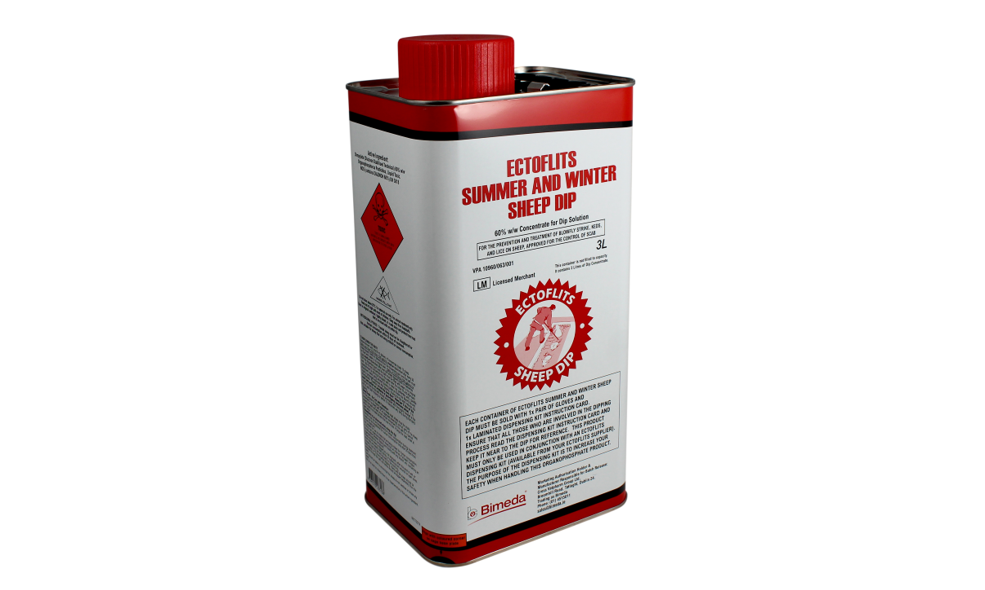At this time of year, appropriate and proactive control of ecto-parasites should be on the agenda for all sheep farmers. Plunge dipping with an OP dip such as Ectoflits is a great choice as it gives immediate ecto-parasite control.
Dipping with Ectoflits is the ideal broad-spectrum method of parasite control for sheep.
This single treatment offers control and treatment of:
- Scab;
- Keds;
- Lice;
- Blowfly.
For farmers who wish to dip – but aren’t able to, or don’t want to carry out the work for themselves – the services of a contract mobile plunge sheep dipper are worth considering, and the contact details for some of these dippers can be found at sheepdippers.ie.
If you are wondering what the services of a mobile plunge sheep dipper involve, check out the above video, which highlights a ‘day in the life of a mobile plunge sheep dipper’.
Sheep Ecto-Parasite Control – Understanding Best Practice
Why Plunge Dip?
Bimeda Animal Health Limited is encouraging farmers that have moved away from dipping in the past, to reconsider this option for ecto-parasite control.
One of Bimeda’s professional services veterinarians commented: “In the past decade or so, farmers have moved towards 3ml injections (ivermectin, doramectin and moxidectin) for the control of internal and external parasites, due to their undeniable convenience.
“However, recent reports of resistance of sheep scab to this class of wormers, allied to the large numbers of resistant internal worms already, means that we have to think carefully about the use and particularly the overuse of these categories of wormers.”
With specific reference to sheep scab, dipping is an excellent option for the control of this notifiable disease.
Dipping is a once-off scab treatment that, in addition to killing the scab on the sheep, will protect the sheep against re-infestation for this critical 17-day period.
Ectoflits OP dip also offers great value, with a 3L container sufficient to treat 500 sheep.
Many key opinion leaders are currently actively promoting OP plunge dipping as best practice.
At a recent series of events in the UK, focused on the best practice for the control of ecto-parasites including scab, leading voices in the field of sheep parasite control all spoke in favour of plunge dipping.
Of course, no treatment method can, or should ever, seek to replace prevention. Bimeda is a strong advocate of ensuring that good biosecurity measures are in place, to reduce the likelihood of outbreaks of ecto-parasites.
Scab, in particular, can be difficult to prevent, as in the early, sub-clinical stages of the disease. Even though sheep are infected, there may be no visible clinical signs. This means that animals – which appear perfectly healthy, with no skin lesions, bald patches or pulled wool – can in fact be carrying scab mites.
This is why sheep scab can be so easily introduced into the flock when buying animals in, and adequate quarantine procedures are vital. New sheep should be kept separate from the flock, at the periphery of the farm, with bio-secure double fencing.
Where it is not possible to quarantine purchased sheep, sheep should be presumed infected and treated with a licenced sheep dip such as Ectoflits.
To learn more about sheep ecto-parasite control and best practice for its control and treatment, as well as to locate your nearest contract mobile plunge dipper, visit: sheepdippers.ie; or call Bimeda on: 1850-51-5253.



